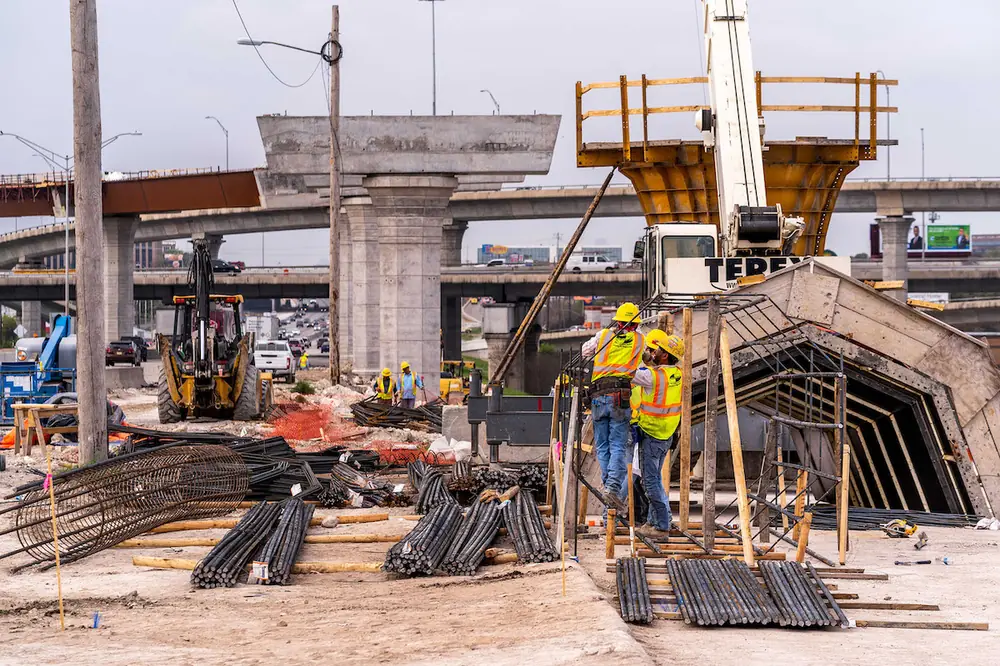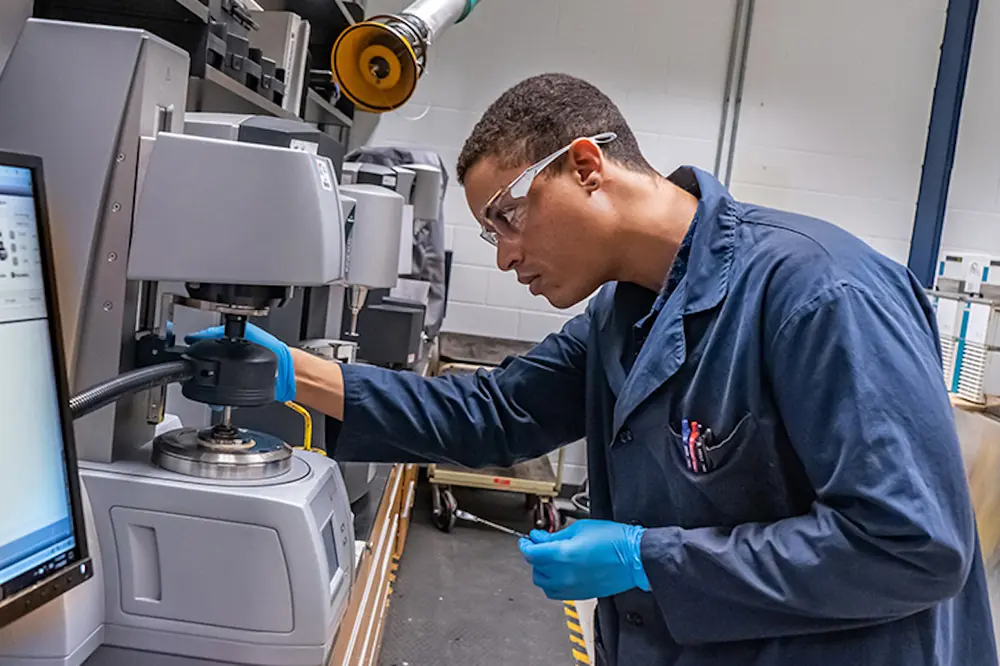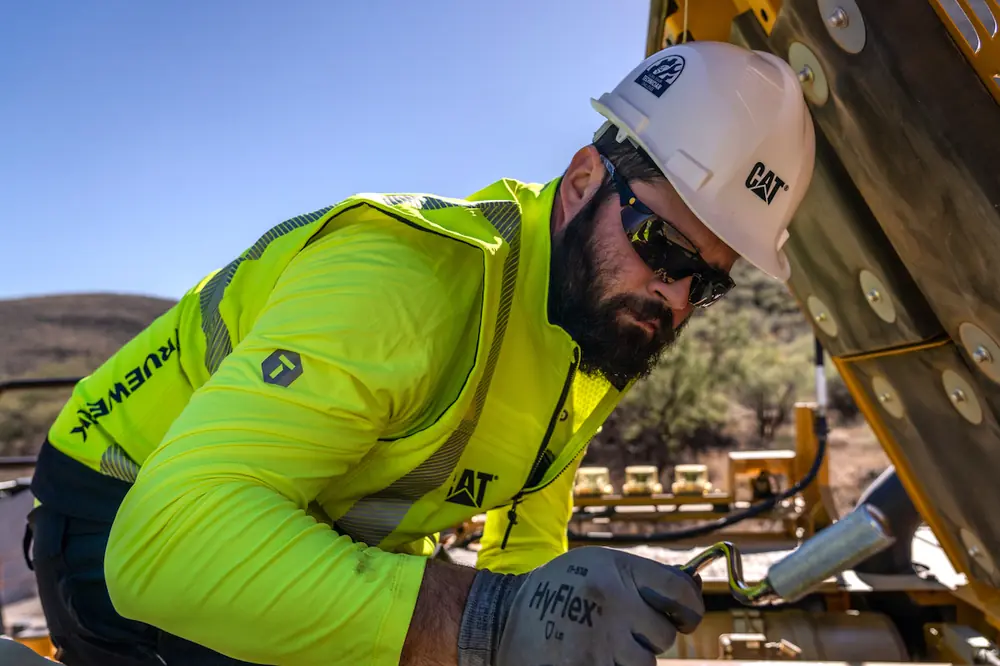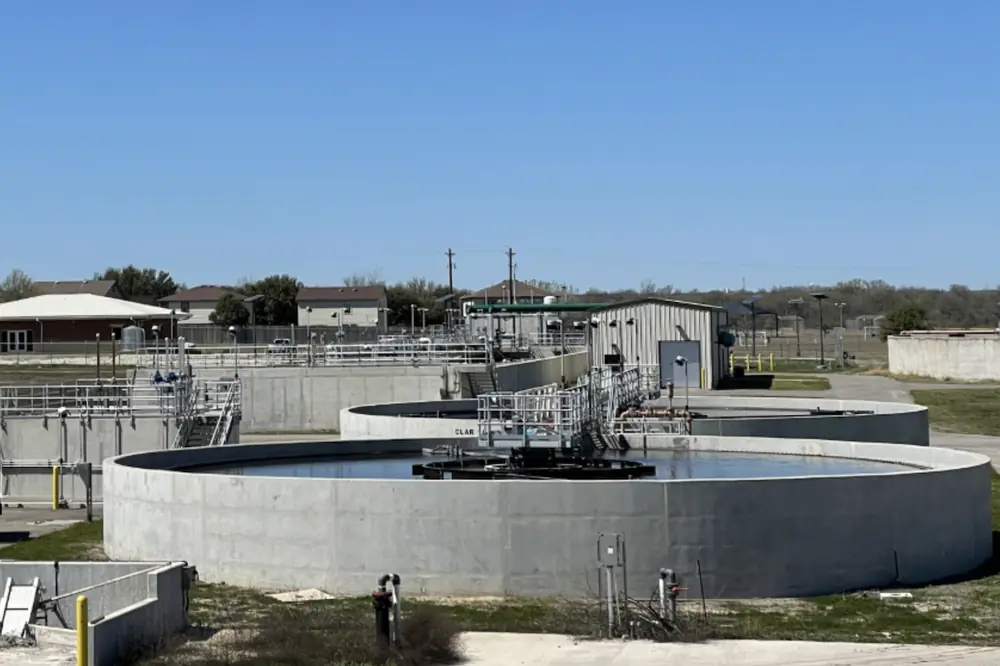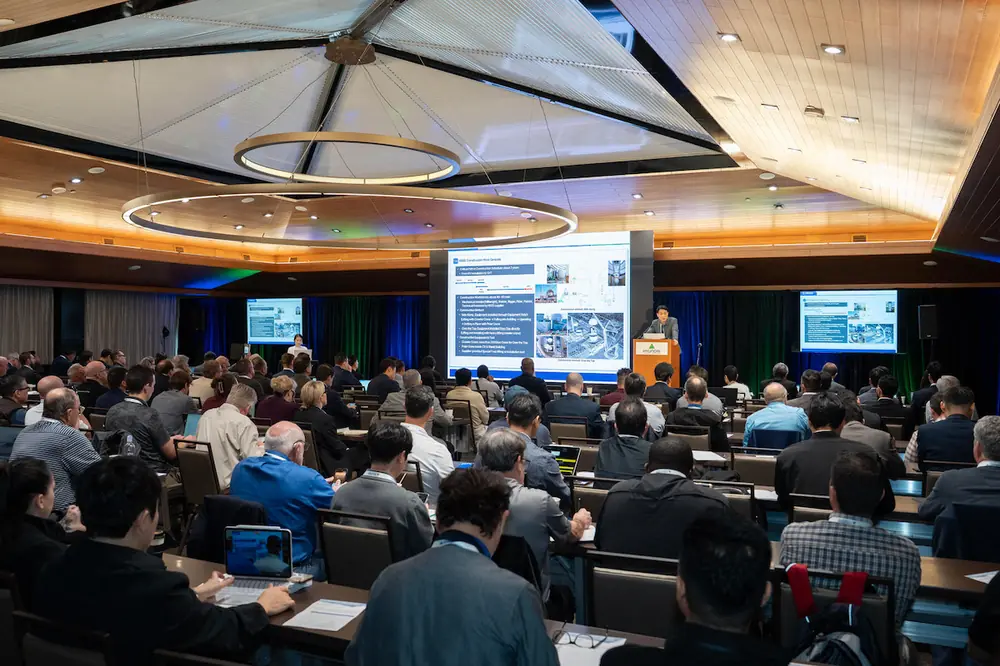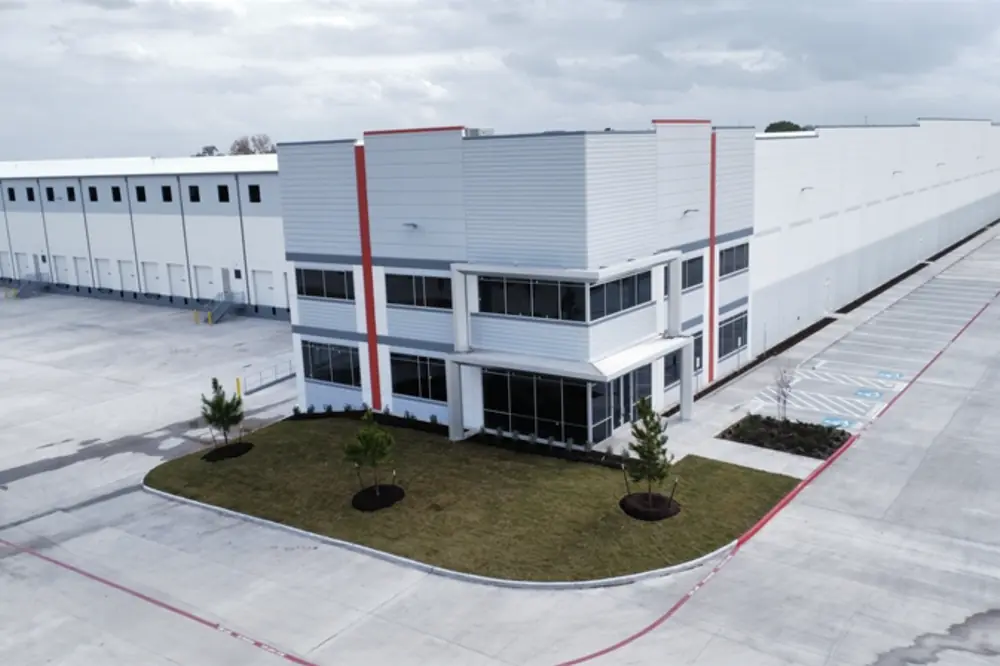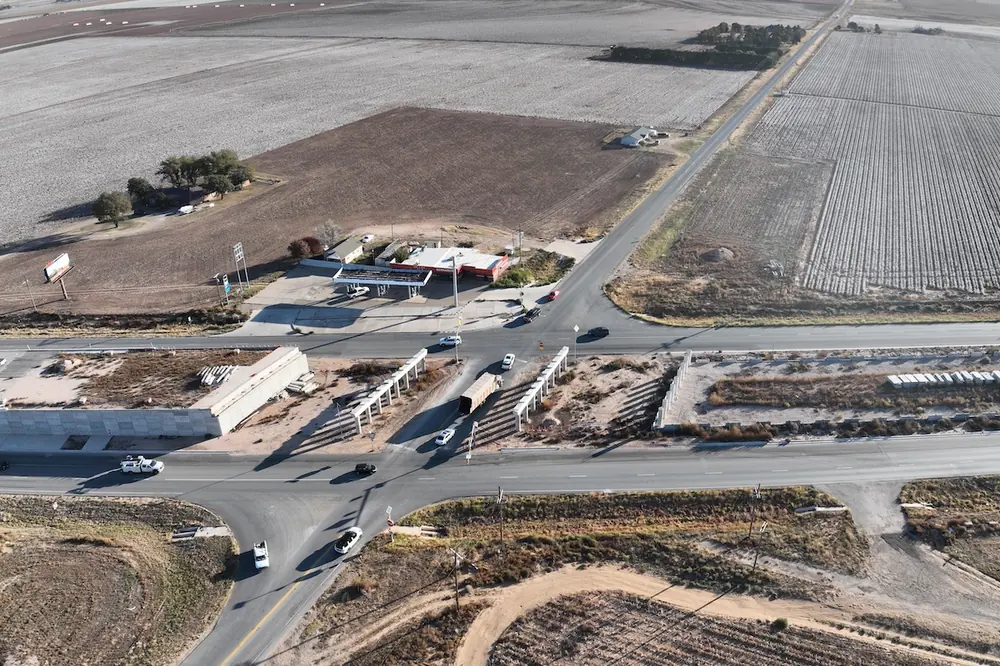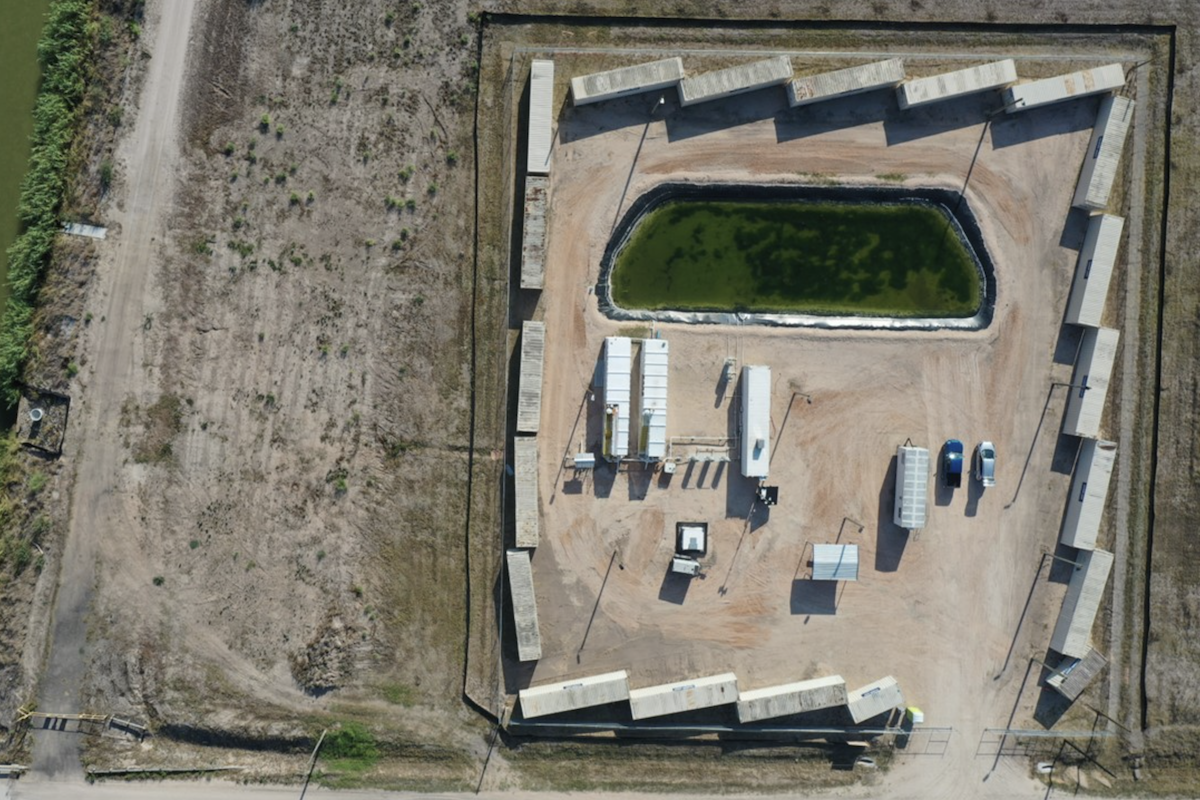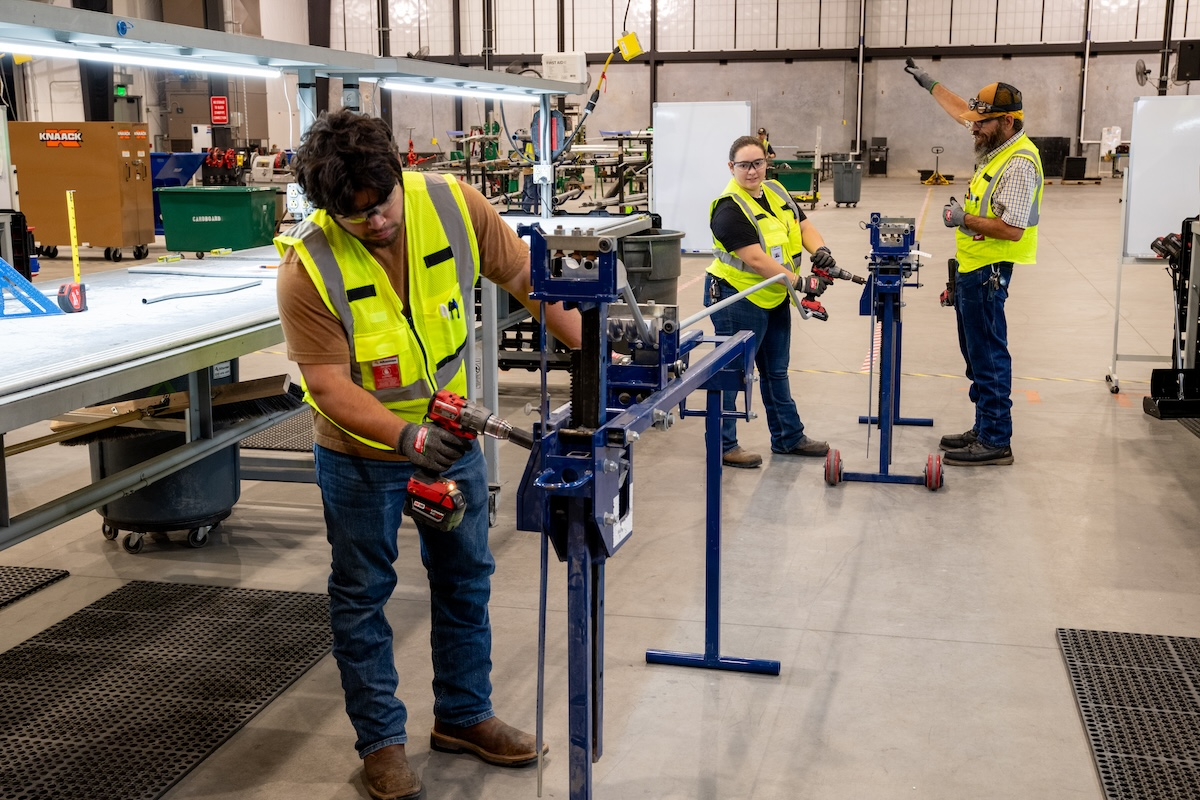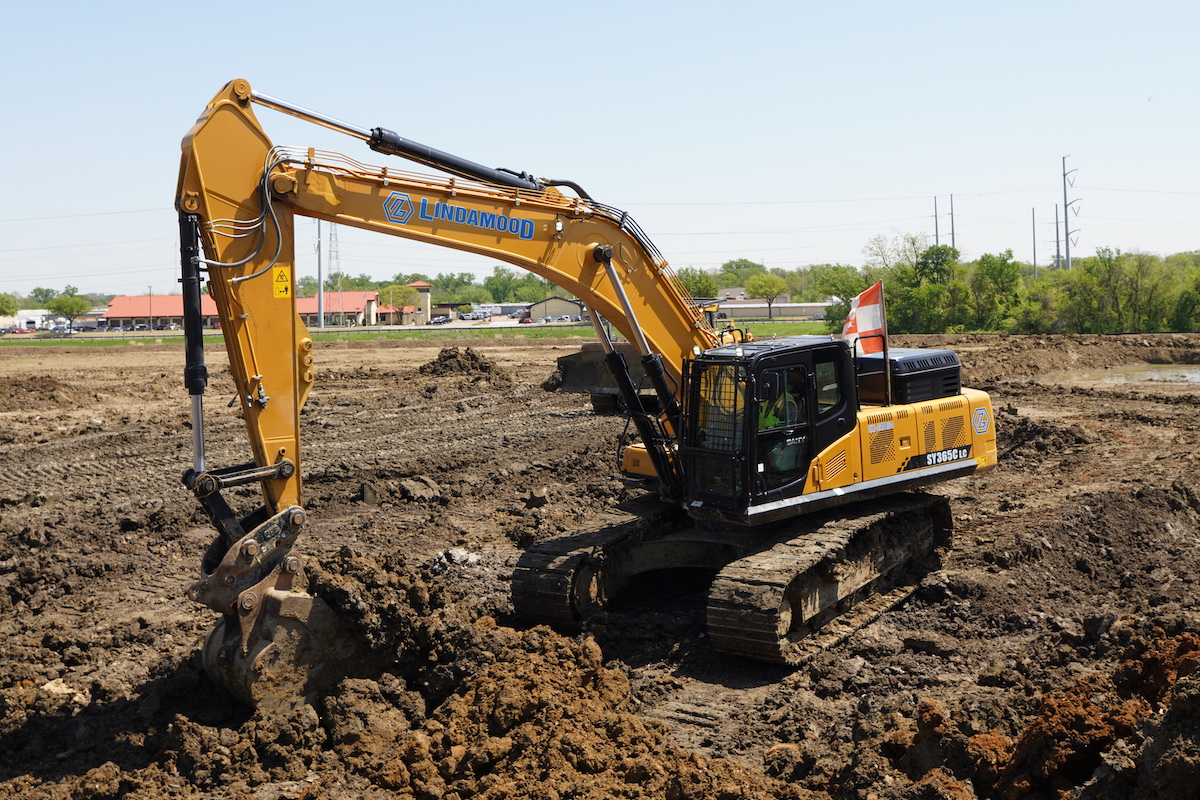The Route 7 Corridor Improvements project covers nearly 7 miles of the road. The route will be widened from four to six lanes. The pavement on the original four lanes is being completely reconstructed. Other sections of Route 7 in the area have already been widened and this project will connect two such stretches of road.
In addition to adding a travel lane in each direction, the project will add a 10-foot-wide shared-use path on both sides of the route. “There has been growing demand for shared-use paths in this area,” says Bill Cuttler, Deputy District Engineer with VDOT.
There are two streams in the area – Difficult Run and Colvin Run – which converge in the middle of the project before crossing under Route 7. The streams can rise quickly under certain conditions and cause flash flooding. To deal with this, the scope includes constructing a new longer and higher bridge to improve safety. A flood plain analysis was conducted to determine the appropriate length and height of the new three-span, 270-foot-long bridge.
Colvin Run feeds into Colvin Run Mill, a historic property as George Washington identified it as a good place to have a mill. Because of the designation, the team had to be particularly careful in the area and ensure it was protected.

| Your local Wirtgen America dealer |
|---|
| Kirby-Smith Machinery |
| Nueces Power Equipment |
A precast pedestrian tunnel is being installed that will go underneath the route to connect a cross-country trail and the historic site on the north side of Route 7, with park property to the south. Previously, users had to cross over Route 7 if they wanted to get to the other side.
This section of Route 7 traverses through a primarily residential area. To reduce the impact of highway traffic noise on adjacent communities, 8 miles of noise walls are being built along the project corridor. They also add an aesthetic element.
The team also is constructing a new intersection on the east end of the project. The displaced left intersection removes left-turn movements from a primary intersection. Traffic can make the left turn at the same time as the through traffic at the main intersection. This is due to traffic signals at the left-turn crossovers and the main intersection operating in coordination. The way this works is by taking out a phase of the traffic signal and lessening conflict points.
“We’re doing this to get more traffic through the intersection during each signal phase and limit delays for through traffic on Route 7,” says Jeff Austin, Design-Build Project Manager from Shirley Contracting Company, the design-builder on the project.
This attests to the fact that the corridor is highly developed. Therefore, working in the area proved a challenge as the project has a wide footprint. “The biggest challenge is minimizing the impacts to the adjacent properties while finding more room to work,” Austin says.

| Your local Wirtgen America dealer |
|---|
| Kirby-Smith Machinery |
| Nueces Power Equipment |
To deal with this challenge, the construction design-build team spent a great deal of time coordinating with VDOT to find ways to minimize property impacts. One method to deal with this was co-locating utilities within right-of-way to minimize utility easements and installing retaining walls to reduce the grading limits.
Another way the team is compensating for working in a tight footprint is by using zero-turn excavators. Instead of having a counterweight on the back which extends beyond the tracks of the machine, the zero-turn excavator is able to work safely in tight spaces eliminating the risk that the counterweight will hit surrounding objects.
One of the local utility companies, Washington Gas, is also constructing a $200 million transmission main upgrade within the project area, which lessens the amount of workspace. While their project started earlier, the two projects have similar schedules. To have both projects move forward on schedule requires daily coordination of work areas and maintenance of traffic efforts.
Lastly, finding room within a developed corridor for the construction of facilities to control and treat stormwater was a challenge. The project includes the construction of six stormwater management basins which were carefully located on undeveloped parcels and coordinated with property owners to minimize tree clearing and aligned to fit within future development plans.
VDOT decided to go design-build on this project. “If the project was delivered in the traditional method, it would have added four years to the length,” says Arif Rahman, a Design-Build Project Manager for VDOT. “Because very trafficked and regularly backs up during rush hour, VDOT wanted to complete this project as quickly as possible.” It’s expected that the project will save commuters up to 10 minutes during peak hours.

| Your local NPK Construction Equipment Inc dealer |
|---|
| WPI |
The project is currently on schedule. Austin attributes this to the maintenance of traffic and sequencing. “We developed a sequence of construction and maintenance of traffic plan that allows for a robust construction plan, all through the right of way phase,” says Austin. Other keys to the schedule, he adds, are closely monitoring the right of way schedule and coordinating with third-party utility partners.
The total cost of the project is expected to be $314 million with construction making up the lion’s share at $281.5 million. Funding for the project is coming through multiple sources, including the Northern Virginia Transportation Authority, as well as the federal, state and local government.
Fairfax County is growing, and Route 7 is a major road in the area. With the average daily traffic count expected to rise to 86,000 vehicles in 2040 from 50,000 in 2018, the need to expand the road was clear. When the Route 7 Corridor Improvements project is complete, drivers will face fewer bottlenecks and back-ups, and there will be improved connectivity between Fairfax and the rest of Northern Virginia.


















